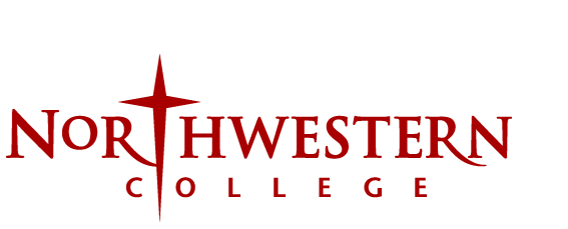The scrapbook, a Bible, birth and christening certificates, and legal documents, tell the story of a German couple during World War II. Roderich Wolff (1897–1973) was Jewish and his wife Elisabeth (1912–2006) was Christian. They married on December 20, 1930, and moved to Erfurt, Germany. Roderich was arrested by the Gestapo during Kristallnacht on November 9, 1938, and sent to Buchenwald Concentration Camp. He was released with payment and an exit visa.
In January 1939 the Wolffs settled in Amsterdam, The Netherlands. Found in the scrapbook are letters from prominent Dutch theologians and resistance workers such as Dr. Johan Eijkman, Dr. M.C. Slotemaker de Bruine, and Hebbe Kohlbrugge. During the German occupation of the Netherlands, Roderich was a forced laborer at Camp Gijsselte and Boschplan Amstelveen. He was also briefly interned at Westerbork Transit Camp.
In 1948 the Wolffs emigrated to the United States and settled in the Palm Springs area in California. In the 1950s Elisabeth compiled legal documents in an attempt to secure restitution from the German government.
In May 2016, Jeff Barker donated the Scrapbook and Papers of Roderich & Elisabeth Wolff to the Archives at the DeWitt Library, Northwestern College, Orange City, Iowa. His mother, Bette Lou Barker, was Elisabeth’s friend and her executor upon her death in San Marcos, California, in 2006. Recognizing the historical significance of the scrapbook, Bette Lou sent the materials to her son, a theater professor at Northwestern College.
The collection (MS17 in Manuscripts and Personal Papers) was processed, researched, and digitized by Sara R. Huyser, Access Services Coordinator. A special thanks goes to Dr. Johan Hegeman for the translation of Dutch documents and for providing valuable historical background. Also thanks to Dr. Michael Kensak, Glenda De Vries, and Dr. Jane Vander Kooi for translating the German documents.
(Note: Elisabeth Wolff goes by many names in the documents: she was christened Johanna Elisabeth Bachmann, but went by Elisabeth. Her nickname was Lisbeth. In America, she changed the spelling of her name to Elizabeth while Roderich also changed his spelling to Roderick.)
-

Baptismal letter from the Netherlands Reformed Church, Amsterdam, April 15, 1940
This letter states that the consistory of the Netherlands Reformed Church in Amsterdam baptized Roderich Wolff on Sunday, March 10, 1940. [English translation and footnotes of Dutch original provided.]
-

Copy of the marriage certificate of Roderich & Elisabeth Wolff, issued December 2, 1938
This copy of a marriage certificate certifies that Roderich Wolff, a Union Secretary, married Johanna Elisabeth Bachmann, a sales woman, in Chemnitz, Germany , on December 20, 1930.
-

Letter from Hebbe Kohlbrugge, September 14, 1945
Hebbe Kohlbrugge (1914 - 2016), a Dutch resistance fighter, testifies that Roderich Wolff aided in the distribution of the illegal pamphlet, “Almost too late.” She asserts that the Wolffs were anti-fascistic during the war years. [English translation of Dutch original provided.]
-

Letter from Elizabeth Catharina Eijkman Haspels (1895-1974) to Roderich and Elisabeth Wolff, April 9, 1947
Elizabeth Eijkman, wife of Dr. Johan Eijkman, thanks the Wolffs for the beautiful plant. [English translation of Dutch original provided.]
-

Letter from Dr. Martinus Cornelis Slotemaker de Bruine to Roderich & Elisabeth Wolff, undated
Dr. M.C. Slotemaker de Bruine, a Dutch theologian active in aiding Jews during the war, thanks the Wolffs for the warm greetings at Christmas. [English translation of Dutch original provided.]
-

Letter from Mrs. Slotemaker de Bruine to Roderich & Elisabeth Wolff, undated
Mrs. Slotemaker de Bruine thanks the Wolffs for gorgeous flowers and delicious chocolate. [English translation of Dutch original provided.]
-

Second Copy of Letter from W. van Vliet, Director A.M.V.J., August 30, 1945
W. van Vliet testifies that Roderich and Elisabeth Wolff were trustworthy individuals and were anti-national-socialistic in their political views. He confirms that Roderich, though Jewish, became a member of the Netherlands Reformed Church and was a faithful attendee. He testifies that Roderich gave advice to Dr. Johan Eijkman and also gave valuable instructions before and during May 1940. [English translation and footnotes of Dutch original provided.]
-

Brochure of the Holland-American Line, List of Passengers, “S.S. Nieuw Amsterdam,” June 22, 1948
Roderich and Elisabeth Wolff are listed as cabin class passengers on the cruise line from Rotterdam to New York City.
-
![Copy of the birth certificate of Johanna Elisabeth Bachmann [Wolff], issued March 12, 1938 Copy of the birth certificate of Johanna Elisabeth Bachmann [Wolff], issued March 12, 1938](https://nwcommons.nwciowa.edu/wolffscrapbook/1044/thumbnail.jpg)
Copy of the birth certificate of Johanna Elisabeth Bachmann [Wolff], issued March 12, 1938
Johanna Elisabeth Bachmann was born on December 16, 1912. Her parents, Paul Curt Bachmann and Marie Elise Müller Bachmann, were both listed as belonging to the German Evangelical Lutheran Church.
-

Article, “Cultural Limelight Shines on Weimar”, The San Diego Union-Tribune, Friday, February 26, 1999
The article discusses the selection of Weimar, Germany, as the European City of Culture and the past history of Buchenwald Concentration Camp.
-

Earnings statement of Roderich Wolff from 1939 through 1956, issued May 23, 1957
In the years 1939 through 1944, no earnings were listed. Following the end of the war, Roderich earned income in the years 1945 through 1947. His earnings are reported from the United States from 1948 to 1956.
-

Birth certificate (Geburtsurkunde) of Paul Curt Bachmann, issued August 3, 1943
Paul Curt Bachmann, Elisabeth Wolff’s father, was born September 22, 1883, in Zwickau, Germany, to Klempners Feodor Gustav Bachmann and Anna Franziska Knietzsch. On the certificate both parents are listed as German Evangelical Lutheran. (2 copies.)
-

Baptismal certificate (Taufschein) of Paul Curt Bachmann, issued August 2, 1943
Paul Curt Bachmann, Elisabeth Wolff’s father, was baptized on October 1, 1883, in the German Evangelical Lutheran Church in Zwickau, Germany. (2 copies.)





![Photograph of a dining room, [19]45 Photograph of a dining room, [19]45](https://nwcommons.nwciowa.edu/wolffscrapbook/1031/thumbnail.jpg)
![Photograph of a living room, [19]45 Photograph of a living room, [19]45](https://nwcommons.nwciowa.edu/wolffscrapbook/1032/thumbnail.jpg)






